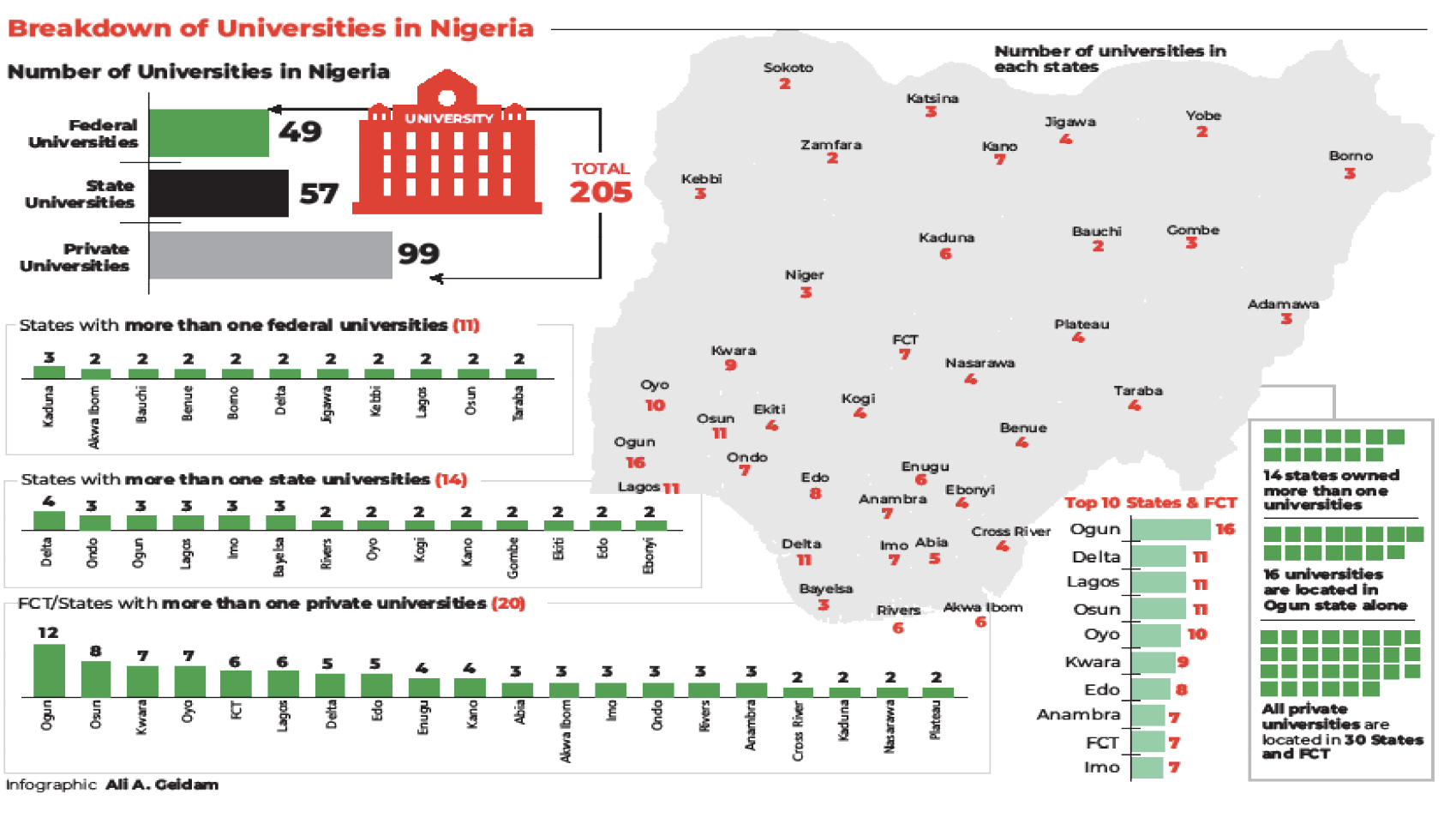Parents, distraught students, critical stakeholders and experts in the education sector are worried that the federal government and the Academic Staff Union of Universities (ASUU) have failed to get it right on how tertiary education should be run, devoid of needless altercation.
Years of strikes by the ASUU have failed to right the wrongs and allow dozens of Nigerian universities to discharge their primary responsibility of educating the people.
- ASUU’s unwinnable battles: The need to change tactics
- ASUU strike: Please, let us concession the universities
Thousands of students who are yet again forced out of university campuses have remained at home frustrated.
As a successor to the Nigerian Association of University Teachers, the ASUU, which was formed in 1978 with membership cutting across academic staff in all the federal and state universities in the country, has weaponised strike as a means to an end, and the move has proved to be impotent.
On the other hand, the federal government has continued to play the ostrich.
While it appears impracticable to give free education at the tertiary level, the federal government has continued to establish more universities, polytechnics, colleges of education and other specialised institutions while the burden of providing basic infrastructure in those established by the 36 state governments is shifted to the centre.
Some of the demands of the ASUU include the need for the revitalisation of public universities, Earned Academic Allowances (EAA), acceptance of University Transparency Accountability Solution (UTAS), payment of promotion arrears, renegotiation of 2009 ASUU-FGN agreement and reversal of alleged inconsistencies in Integrated Payroll and Personnel Information System (IPPIS).
The aggrieved lecturers had on February 14, 2022 declared a one-month warning strike in protest against government’s failure to meet their demands.
The government could not do anything, and rising from an emergency meeting of its National Executive Council (NEC) in the University of Abuja on March 14, ASUU president, Professor Emmanuel Osodeke, said that having taken reports on the engagements of trustees and principal officers with the government, the union concluded that government had failed to satisfactorily address all the issues raised in the 2020 FGN/ASUU Memorandum of Action (MoA) within the four-week roll-over strike period and resolved that the strike be rolled over for another eight weeks to give government more time to address all the issues in concrete terms so that their students would resume as soon as possible.
Reports stated that the ASUU had spent a cumulative period of 49 months and two weeks boycotting the classrooms between 1999 and now. This translates to over four out of the 23 years of current democratic dispensation wasted to what observers called “needless industrial dispute between the lecturers and the federal government” at the detriment of students who spend more than the prescribed time for their studies.
However, while the ASUU insists that asking parents to pay tuition fees for their children will not liberate the universities, and that the federal government must continue to shoulder the burden, some experts in the education sector who spoke to Daily Trust on Sunday ruled out strikes as an option or solution to the protracted impasse, and called for a new approach.
A retired federal permanent secretary and professor in the National Institute for Policy and Strategic Studies, Tunji Olaopa said the ASUU was pursuing “unwinnable battles”.
Also, an associate professor in the Department of Political Science and Public Administration, Baze University, Abuja, Dr Hakeem Baba-Ahmed, said if the federal government must maintain ownership of its universities, it must yield substantial autonomy to their decision-making and management organs.
While some experts called on the government to concession universities, others said parents should be ready to pay tuition fees in public tertiary institutions the way they pay hundreds of thousands for their children to learn in private nursery and secondary schools.

 Join Daily Trust WhatsApp Community For Quick Access To News and Happenings Around You.
Join Daily Trust WhatsApp Community For Quick Access To News and Happenings Around You.


